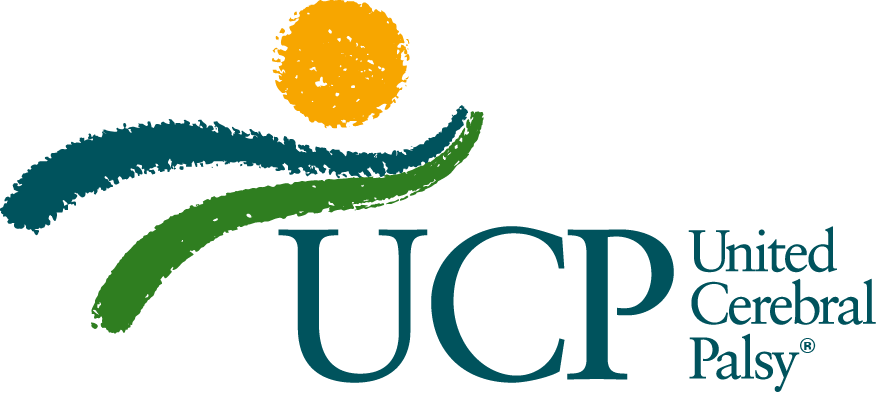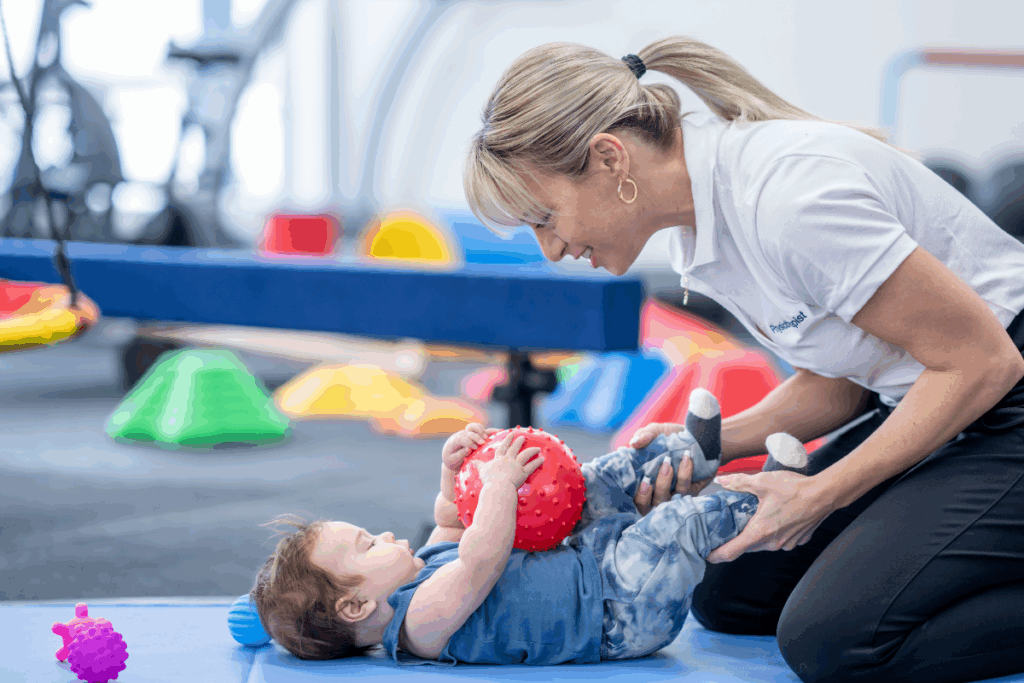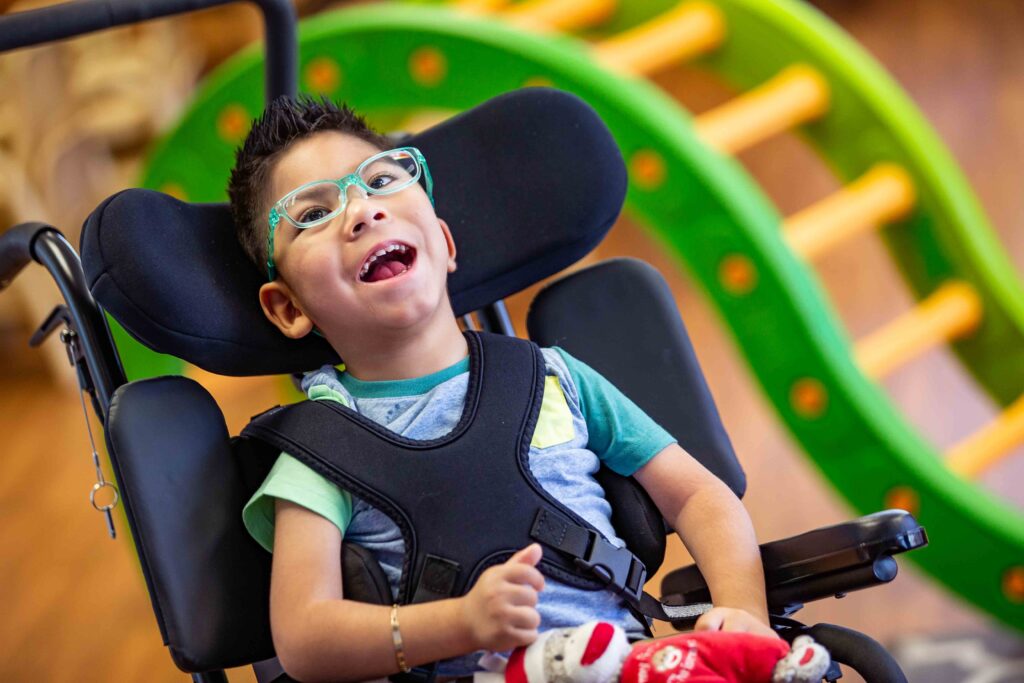NOTE: The following press release is presented as a narrative feature on the subject of people with disabilities and the effects of COVID-19. The article is intended to offer a general overview of the key issues affecting the disability community amid the spread of the coronavirus. It was prepared by the Washington, D.C.-based United Cerebral Palsy National on behalf of its 63 network affiliates. A contact list for the sources quoted is provided at the end of this document. Digital or print media publications interested in excerpting or reprinting this article should contact Mr. Contreras at AContreras@ucp.org. Mr. Contreras and the other sources cited are also available for an interview.
WASHINGTON, DC – In a world that often fails to acknowledge the value, contributions, and at times even the presence in society of people with disabilities, the spread of COVID-19 carries a unique set of challenges and dangers for the disability community. “The care, love, and protection of human life are of utmost importance and priority during this pandemic,” said Armando Contreras, President, and CEO of United Cerebral Palsy National. “Facing today’s crisis is even more unsettling for someone with a disability than for the general population. The combination of living with a disability and the isolation that comes from needing to stay at home or in a group living arrangement can dramatically increase their vulnerability to COVID-19.”
Contreras and other advocates for people with disabilities say there needs to be much more awareness among the general public, the health community, and elected officials about the way in which tens of millions of people with disabilities nationwide are being affected by the spread of the coronavirus.
How many people with disabilities in the U.S. are at risk amid the current crisis?
- One in four adults in the U.S., or about 61 million people, have a disability. (Centers for Disease Control and Prevention)
- About 6.5 million people have intellectual and developmental disabilities (IDDs), such as cerebral palsy, Down syndrome, or autism spectrum disorders (ASDs). (The National Institutes of Health)
- One-third of U.S. households have someone who has a disability (Institute on Disability, 2017).
- Less than 1.0% of people under five have a disability, and for children 5-17, the rate is 5.6%. (Disability Compendium, 2016)
Tia Nelis, Policy and Advocacy Director of TASH, an international disability advocacy group, said that for someone with a disability the strains and stresses of extended isolation can be highly disruptive or even life-threatening.
For instance, the need for social distancing in the face of the virus’ spread means direct support professionals, or DSPs, who assist and care for people with disabilities may not be able to provide in-person individual or group services without the risk of infection.
“If a person with a disability doesn’t have anyone else in their lives, then who are they going to depend on?” Nelis asked.
Doug Bergman, President and CEO of United Cerebral Palsy of Sacramento and Northern California, said his organization provides care and services for more than 300 clients a day.
“We’ve had to temporarily close eight day-programs. Our clients are all basically stuck at home now,” said Bergman, who adds that his organization normally operates a fleet of 45 buses that transport clients to and from classes, programs, community activities, and other appointments at the facility. Bergman’s staff is doing its best to maintain contact with his organization’s clients through computer video meetings and telephone.
Program Manager Rebekah Miranda told FOX News in Sacramento: “We’re FaceTiming. We’re writing them letters. Just trying to keep that socialization going with our folks and make it easier during this time.”
Social interaction for people with disabilities is critical, especially given that many rely on the assistance of personal care attendants, home health care aides, or direct support professionals to perform tasks that may be routine for someone without a disability. Adriane K. Griffen, Senior Director of Public Health & Leadership at the Association of University Centers on Disabilities, said people who depend on personal assistance are facing new vulnerabilities during the crisis.
“How do they social distance? It’s important that people with disabilities in this situation have the skills and confidence to advocate on their own behalf,” said Griffen. People with disabilities shouldn’t hesitate to request that attendants abide by protective health practices, like insisting that they wear proper protective gear and regularly wash or sanitize their hands, said Griffen. But not everyone is able to speak out on their own behalf. Griffen worries about people with serious neurological disabilities who may not be capable of grasping the magnitude of the pandemic’s threat.
Adding to the problem, hospital staff may not be experienced or trained on how to interact with someone with a disability.
“People who need the support of a caregiver or family member are having a hard time accessing medical treatment because they’re being told they can enter a doctor’s office or treatment facility, but not with their caregiver or interpreter,” said Griffen.
Nelis added, “When you’re sick you’re scared and don’t always know how to communicate how you’re feeling. People with a disability need to have somebody there who they can trust.”
The rationing of Personal Protective Equipment (PPE), used to protect against infection, to ensure there’s enough for front-line hospital health care workers or emergency medical personnel may be endangering workers who assist people with disabilities. Joseph Macbeth, President and Chief Executive Officer of the National Alliance for Direct Support Professionals, said DSPs are often risking their lives to provide support for people with intellectual and developmental disabilities.
“No disrespect to doctors, nurses, and other health care professionals on the frontlines, but DSPs are every bit as essential. They’re risking their health and the health of their families to provide support for people with disabilities.”
Macbeth said DSPs, however, are grossly underpaid. Many earn little more than minimum wage, largely because the work they do is not officially recognized by the U.S. Bureau of Labor Statistics.
According to The Case for Inclusion 2020, published by UCP National and the ANCOR Foundation, the field has long been characterized by low wages and high job turnover and vacancy rates.
“There’s already a major shortage of the workers trained to help people with intellectual and developmental disabilities in everything from completing routine daily activities to building job skills or participating in important civic activities, such as voting,” said Contreras.
Macbeth said, “Direct support professionals are exposing themselves to great harm. Of course, they’re essential. Without them, many people with disabilities would not be able to survive this pandemic. The dedication that we’re seeing from DSPs in this crisis should not go unnoticed. They really do care about humanity.”
The difficulty of raising public awareness about the dangers posed by COVID-19 to people with disabilities may be tied in part to the fact that it isn’t always obvious if someone has a disability.
The Americans with Disabilities Act (ADA) defines a disability as “a physical or mental impairment that substantially limits one or more major life activities” or “being regarded as having such an impairment.”
“The term ‘disability’ casts a broad net,” Griffen said, who explains that the range of socalled visible disabilities can include conditions such as cerebral palsy, spina bifida, multiple sclerosis, and a multitude of other physically limiting conditions. But there are less discernable or “invisible” disabilities, such as chronic mental health disorders or neurological conditions, such as autism or Asperger syndrome.
The challenges posed by a disability during the COVID-19 crisis are also magnified by economic or social factors, such as discrimination, poverty, and the lack of access to proper health care.
“The poverty rate for adults with disabilities is more than twice the rate of adults with no disability (27 percent versus 12 percent),” according to a report by the National Disability Institute (NDI), and “children living in poverty are more likely to have asthma, chronic illness, environmental trauma such as lead poisoning, learning problems, and low birth weight that lead to disabilities.”
People with disabilities already forced to live a hand-to-mouth existence before the pandemic may find themselves facing a financial catastrophe in the coming weeks or months because of the COVID-19 crisis.
Under normal circumstances, not having enough food is a problem for many living on a lower income, but the pandemic is creating or exacerbating food scarcity issues for people with disabilities. A person with a severe disability may not have the ability to shop on their own or have resources to order delivered to them.
Children with disabilities, like all children but often moreso, depend on adults to keep them safe and sheltered, but that dependency grows in times of crisis. For instance, Lisa, who asked that her last name not be used, described how she was afraid to leave her house to buy food during the pandemic because her son has diabetes and asthma. Underlying medical conditions can leave some people more vulnerable to the debilitating or even lethal effects of COVID-19. Fortunately, Lisa was able to tap into a family resource center that’s been able to provide donated food to her until she is able to go back to work.
Parents who’ve suddenly found themselves having to home school or tutor their children in the wake of mass school closures are common now, but parents of children living with a disability have also had to become round-the-clock caretakers.
Nicole Anderson is one of those parents. Her five-year-old daughter, Alexandra, has Pitt-Hopkins syndrome, a rare neurological disorder often accompanied by a lack of speech and mobility, breathing problems, and epileptic seizures. Anderson says she and her husband, fortunately, have jobs they can do from home, though she admits it’s been taxing having to juggle their work responsibilities and caretaking duties.
The spread of the virus has disrupted everyone’s life, but for a person with a serious disability, it can be harder to adjust to a new routine. “Routine is important for any child,” said Anderson. “As adults, we also crave our routines. But for children who are neurologically compromised they need to have comfort zones…” Having at least virtual access to Alexandra’s many therapists at UCP of Central Arizona has helped smooth the transition to having to be homebound, said Anderson.
“As a parent, I’m relieved that we can continue progressing with her treatment regimen” via live-streamed video. Meeting with a therapist online isn’t as effective as meeting in person, but Anderson said her daughter has adjusted well to her remote therapy sessions and has already made major strides since teletherapy began.
Michael Kruer is a pediatric neurologist and director of the Cerebral Palsy and Pediatric Movement Disorders Program at Phoenix Children’s Hospital. He is also Alexandra’s doctor. He said many of the parents he works with are taking on more of the responsibility of caring for their children with special needs.
“That’s obviously brought some challenges,” said Kruer. “It’s been about a lot of creative trouble-shooting. Fortunately, most parents have taken very well to it.”
Since many of those he treats have a diverse array of neurological disabilities, Kruer said they would face greater health risks if they were to catch the virus. “It’s a population that’s susceptible to respiratory illness from not being able to perform essential functions as well, like being able to swallow,” Kruer said, and many of the children are susceptible to pneumonia. So, parents and other caretakers have to be hyper-vigilant about protecting them against infection.
Like most of his colleagues, Kruer said he’s switched almost entirely to video appointments. Live streaming, instead of meeting in person, said Kruer, has actually been helpful for some families. For parents who live in rural parts of the state, getting a
child to and from Phoenix, sometimes toting a wheelchair or other medical equipment, is an all-day affair.
Most of the families Kruer works with have adjusted to the new routine, but he worries about children who live in group homes for young adults and chronic care facilities. “Anytime you have groups of people together the potential of infection is higher,” Kruer said.
Low-income families, Kruer adds, are also having a tougher time. In addition to caring for a child with a disability, a low-income parent may be worrying about paying rent, utilities, or mortgage payments. “There are some families who do not have internet access or computers. For them, we’re doing appointments over the phone.”
Anderson said her heart goes out to the parents of children with disabilities who are struggling during the crisis to make ends meet. “I know how fortunate Alexandra is. She has access to everything she could ever need. That’s what moms do. We’re grateful that we have the time and resources to care for her, and the ability to be there for Alexandra morning, noon and night. Because of the [crisis], I know what she needs to succeed more than ever before.” Anderson adds, “It’s a new reality we’re all adjusting to. Alexandra challenges us every day to be the best version of ourselves so we can help her be the best version of herself.”
###
Sources:
Dr. Michael Kruer– Phoenix Children’s Hospital and Associate Professor of Neurology &
Child Health at the University of Arizona College of Medicine Phoenix MKruer@phoenixchildrens.com
Dr. Adriane K. Griffen, Senior Director of Public Health & Leadership, Association of University Centers on Disabilities- agriffen@aucd.org
Tia Nelis, policy and advocacy director for TASH, an international disability advocacy group, tnelis@tash.org, 240-305-0673
Nicole Anderson, MNpS, advocate and mother to Alexandra (diagnosed with Pitt Hopkins Syndrome); Board Member, United Cerebral Palsy of Central Arizona, 602-717-2882, nicole.almondanderson@gmail.com
Doug Bergman, President/CEO, UCP of Sacramento and Northern California
4350 Auburn Blvd., Sacramento, CA 95841
Direct: 916 830 7783
Joseph M. Macbeth, President and Chief Executive Officer of the National Alliance for Direct Support Professionals, 518-542-6945, jmacbeth@nadsp.org
About United Cerebral Palsy (UCP)
United Cerebral Palsy has proudly served the disability community for more than 70 years. The network has 63 affiliates across the United States and Canada that provide direct program services to more than 155,000 individuals and families. UCP is dedicated to ensuring that people with disabilities live a life without limits.




